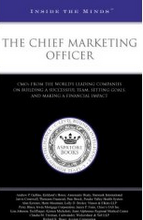Most companies are totally unprepared to deal with the new e-nastiness. That's worrisome as the Web moves closer to being the prime advertising medium—and reputation conduit—of our time.
Trashing brands online can also be a sport. Witness the faux ads bashing the Chevy Tahoe as a gas-guzzling, global-warming monster. Millions of people watch this stuff then pile on. Is it any wonder companies lose control of the conversation?
When the Web turns against them, executives face the problem of how to manage the blowback. They have two choices: ignore the smaller furies and hope they won't metastasize, or respond outright to the attacks.
Companies such as Lenovo Group, Southwest Airlines, and Dell now have specialists dedicated to engaging or co-opting their critics. Other businesses hire firms such as BuzzMetrics or Cymfony. Those outfits use algorithms to analyze which bloggers and social media are driving the conversation around issues that matter to marketers. (Trackback to my podcast interview with Jim Nail of Cymfony)
New premium service providers claim they can promote the info you want and suppress the news you don't. Some say they can make information disappear altogether!
But we know better, of course. The Web is like Whac-A-Mole. For every proactive move, another crisis can flare up elsewhere.
Where is all this headed? I believe anyone's 15 minutes of infamy is no longer something that gets buried in the sands of time. Google changes all that, and "ruined for life" becomes a very real possibility. Even if you can rebuild your reputation, missteps cost plenty and take a heavy toll on individuals and businesses.
To learn more listen to my podcast with Chief Strategy Officer of iCrossing Adam Lavelle coming up later this week.
Tags:







This comment has been removed by the author.
ReplyDeleteThis “trustmeister” completely agrees with you Paul.
ReplyDeleteInfamy is no longer something that gets buried in the sands of time. As you point out, Google changes that.
Interestingly, this was the case just a few decades ago. Social circles were smaller and one had to work assiduously to maintain his/her reputation. Ruination — for life — was a real possibility.
One lesson here is that reputational performance is returning to that level of importance in the digital age.
The takeaway for trustmeisters: Reputational missteps cost plenty and can stick with you for years. Like the 19th century gentleman of days gone by, long-term performance requires managing your reputation proactively and with care.